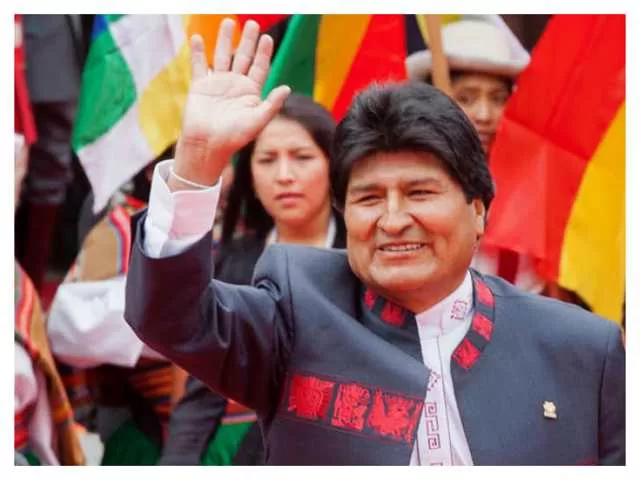Explore the remarkable journey of Evo Morales, Bolivia’s first indigenous president. From Aymara roots to political heights, discover the complexities, controversies, and praises that define his enduring legacy.
Evo Morales
In the tapestry of Bolivian history, one name stands out prominently – Juan Evo Morales Ayma. A trailblazer, a leader, and the first indigenous president not only in Bolivia but across South America. This article delves into the multifaceted persona of Evo Morales, exploring his journey from the Andes Mountains to the halls of power.
Evo Morales: A Landmark Presidency
Since ascending to the presidency in 2006, Evo Morales has etched his name in history, securing three consecutive electoral victories, marking an enduring tenure of 12 years and counting. His popularity transcends political realms, giving rise to terms like “Evonomics” for his economic ideologies and “Evoism” for his political philosophy.
From Aymara Roots to Political Heights
Hailing from the Aymara indigenous group, Morales draws strength from a heritage rooted in the Andes Mountains. The Aymara people, predating Spanish colonization and Inca conquest, form an integral part of Bolivia’s cultural tapestry. Morales’s journey unfolds from humble beginnings as a farmer to becoming a vocal advocate for workers’ rights, labor unions, and land reform.
The Multifaceted Morales
Beyond politics, Evo Morales scripted an unconventional chapter in sports history, becoming the world’s oldest active professional football player in 2014. While his team, Sport Boys Warnes, benefited from his occasional participation, Morales’s primary focus remained on governance.
Unveiling Controversies and Praises
Evo Morales, a polarizing figure, faced criticism from various quarters, reflecting the inherent challenges of leadership. Complaints emerged from both wealthy and impoverished Bolivians, from those of European ancestry and indigenous backgrounds. The diversity of opinions underscores the complexity of governance, where pleasing everyone remains an elusive goal.
Championing Social Causes
Amidst the controversies, Morales earned accolades for his unwavering stance against illiteracy, poverty, racism, and sexism. Indigenous communities hailed him as a hero, viewing his leadership as a symbol of empowerment. Morales’s advocacy for the environment further solidified his image as a leader with a holistic vision for Bolivia’s future.
Fashion of the Populist
One distinctive aspect of Morales’s presidency is his use of traditional clothing and indigenous symbols within the corridors of power. This “Fashion of the Populist” became a powerful tool, fostering awareness, appreciation, and pride in indigenous cultures. It symbolized a paradigm shift, challenging traditional norms and embracing Bolivia’s rich cultural mosaic.
Conclusion: Legacy of Evo Morales
Evo Morales emerges not merely as a political figure but as a symbol of resilience, breaking barriers entrenched for centuries. His legacy, characterized by social reforms, cultural resurgence, and political endurance, continues to shape Bolivia’s trajectory. Evo Morales remains a testament to the transformative power of leadership rooted in indigenous values.

